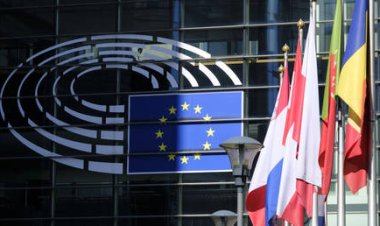Promoting genuine multilateral cooperation: AIIB adds stability to the global stage
The AIIB, an intergovernmental and multilateral development institution in Asia, embodies true multilateralism by fostering connectivity and economic integration in the region through infrastructure development.

The Asian Infrastructure Investment Bank (AIIB) was officially launched on December 25, 2015. As an intergovernmental, multilateral development institution focused on the Asian region, the AIIB embodies true multilateralism and supports connectivity and economic integration across Asia through infrastructure projects.
In this manner, the AIIB enhances global development certainty while leveraging both Asian strengths and Chinese insights.
The AIIB is reshaping the international multilateral development system with a significant impact on the global economic governance model. Historically, developed countries, particularly the United States, have dominated international financial organizations, using their influence within these frameworks to impose unjust political and economic demands on developing nations, which ultimately harms their interests. However, the AIIB, spearheaded by China, disrupts this monopoly and transforms the global multilateral development landscape.
With principles of fairness, equality, and inclusive participation, the AIIB ensures that every member has voting rights and can represent their interests effectively, thereby reflecting the core concerns of many developing nations. Its establishment has notably amplified the voice of these countries in the realm of global economic governance.
Focusing on infrastructure investment, the AIIB plays a significant role in advancing infrastructure projects in developing nations. As of December 24, 2024, the AIIB approved 303 projects, allocating financing totaling $58.88 billion, with committed financing reaching $48.94 billion. The bank's infrastructure projects cover a variety of sectors, with 22 percent in energy, 17 percent in transport, and 15 percent across multiple sectors. For instance, the Rogun Hydropower Development Project in Tajikistan received $270 million in funding, and India's Mumbai Metro Line 5 was approved for $200 million.
Given the generally low infrastructure development and financial constraints in many developing countries, the AIIB's support has been crucial for enabling these nations to undertake significant infrastructure initiatives. As infrastructure demands continue to rise in underdeveloped regions, the bank's role in financing these projects will only grow in importance.
Moreover, the AIIB-funded infrastructure projects yield substantial economic and social benefits, spurring local economic growth. The investments have significantly enhanced energy and transportation infrastructure, improving local electricity distribution, communications, and transport networks. These advancements have empowered local governments to attract investments and pursue economic activities. The Broadband Infrastructure Project in Oman, approved for $152.1 million in 2017, notably reduced communication costs for residents. In 2023, Cote d'Ivoire's $200 million project focused on inclusive connectivity and rural infrastructure enabled farmers to efficiently transport their agricultural products to ports.
Additionally, Laos' Monsoon 600 Megawatt Cross-border Wind Power Project, receiving $150 million in funding, is generating green electricity locally while supplying power to Vietnam through high-voltage transmission lines. This cross-border electricity trade benefits both nations, enhancing Laos' revenue and helping Vietnam meet its energy needs.
The AIIB's support has drastically improved inadequate infrastructure in numerous regions, injecting fresh momentum into economic growth across developing countries.
Further, AIIB-funded infrastructure has the potential to alter the factor endowments of developing nations, allowing them to climb the value ladder in global industrial and supply chains. A saying in China highlights the importance of infrastructure for wealth creation: "to get rich, build roads first." China's transformation from an impoverished agricultural society to a modern industrial powerhouse can largely be attributed to extensive infrastructure development.
The growth model of attracting foreign direct investment and promoting the flow of resources through infrastructure initiatives offers useful lessons for less-developed countries. The AIIB can facilitate the replication of this model by supporting infrastructure projects that optimize resource allocation and development.
This transformative approach can alter local economies, shifting industrial structures from low-end to mid- to high-tier levels, and fostering a transition from exporting primary products to manufactured goods. By enabling developing countries to escape limitations within lower tiers of global supply chains, the AIIB supports their ascent within the value chain.
In these challenging times, characterized by increasing backlash against globalization and rising protectionism, the AIIB's multilateral efforts bring necessary stability to global development. The AIIB now comprises 110 members, including 48 regional and 50 non-regional members, representing 81 percent of the global population and 65 percent of the global GDP.
Beyond its collaboration with developing nations, the AIIB has also cultivated partnerships with developed countries like the United Kingdom, France, and Germany, facilitating the flow of funds from these economies to developing regions. Its projects extend beyond Asia, providing critical support to underdeveloped nations in Africa and Latin America.
Through targeted infrastructure investments, the AIIB is generating fresh growth opportunities for developing economies and creating new centers for global economic expansion. In an increasingly uncertain international political and economic environment, the bank's initiatives contribute greater certainty to global development.
James del Carmen for TROIB News
Find more stories on Business, Economy and Finance in TROIB business












